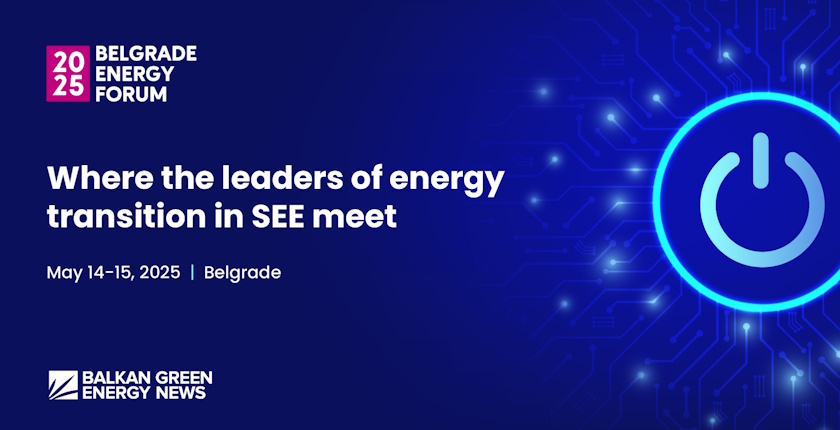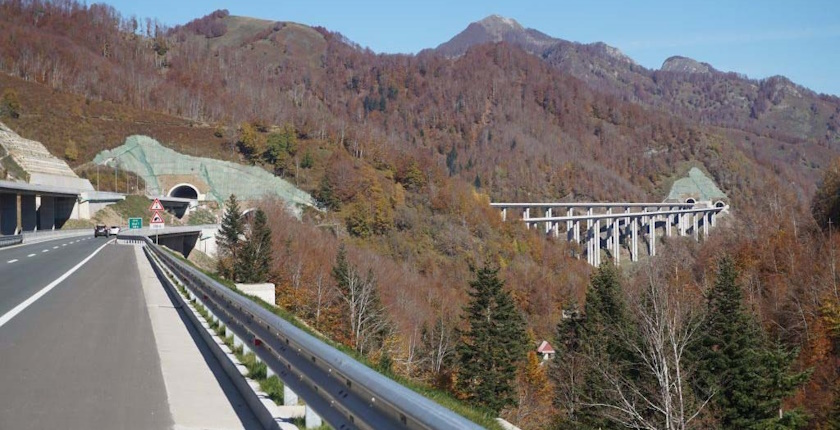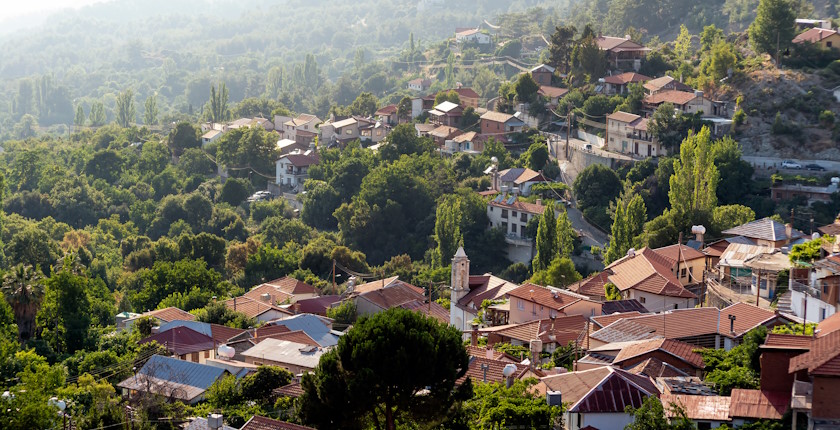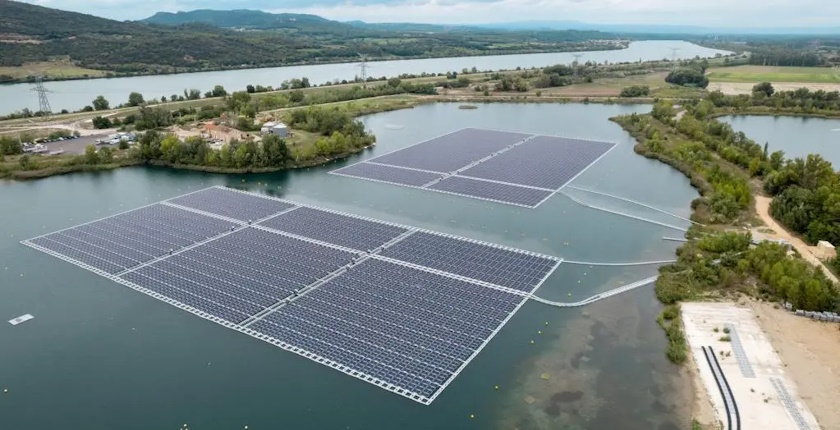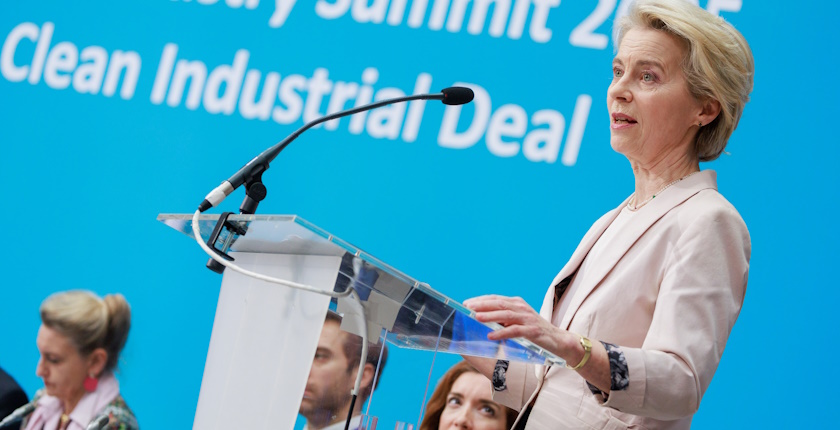
EU Clean Industrial Deal envisages EUR 100 billion Industrial Decarbonisation Bank
Unveiling its Clean Industrial Deal initiative, the European Commission vowed to raise as much as EUR 100 billion within ten years for its Industrial Decarbonization Bank scheme. It would also mobilize over EUR 100 billion in the short term to support domestic clean manufacturing. Proposed measures from one of the deal’s pillars, the Action Plan for Affordable Energy, could bring annual savings estimated at up to EUR 260 billion by 2040.
Following the European Green Deal, the NextGenerationEU investment package and the Green Deal Industrial Plan from the first mandate, European Commission President Ursula von der Leyen launched the first major legislative push since her reelection. The Clean Industrial Deal is aimed at providing the means for reindustrialization in parallel to faster decarbonization, supporting competitiveness and resilience and retaining talent.
The first batch of proposals involves the simplification of the Carbon Border Adjustment Mechanism (CBAM) and sustainability reporting rules including delays to relieve businesses.
Member states are responsible for electricity affordability action
Another pillar is the new Action Plan for Affordable Energy. It is a set of short-term measures to lower energy costs, complete the Energy Union, attract investments and be better prepared for potential energy crises. Outlining the proposal, the European Commission estimated potential annual savings for households and companies at up to EUR 260 billion by 2040.
However, for now the only tangible move is a call to member states to lower electricity taxes and network charges. At the same time, hundreds of billions of euros are required to strengthen and expand the grid.
The EU is preparing a EUR 500 million pilot program for financial guarantees for offtakers in PPAs
In line with an existing strategy, the plan should help ensure that retail electricity bills are not dictated by high and volatile gas prices thanks to a broader uptake of long-term contracts for clean power. On that note, a EUR 500 million pilot program is in the works for financial guarantees for offtakers in power purchase agreements (PPAs). The focus is on small and medium-sized enterprises and energy-intensive industry.
New rules would ensure that consumers can utilize the flexibility that demand response enables. In short, electricity needs to be used when it is cheaper, while consumption should be adjusted when power supply is weak.
In cooperation with the European Investment Bank, the commission will explore setting up a guarantee scheme to support financing models that alleviate initial costs for energy efficiency services.
Von der Leyen: We must turn the tide
In the short term, the Clean Industrial Deal will mobilize over EUR 100 billion to support clean manufacturing in the European Union, according to the announcement.
“We know all too well that production costs have increased, specifically for energy-intensive industries. The demand for clean products has dipped, and some investments have moved to other regions. So, we must turn the tide. And this is the central goal of the Clean Industrial Deal,” Von der Leyen stated.
Greenhouse gas emissions from the energy sector fell almost 10% last year while energy consumption grew by 1%, she noted. “We are on track to achieve our 55% emission reduction target for 2030. And this gives you the predictability you need to plan your investments,” said the chief of the EU’s executive arm.
More than 50% of steel, iron, zinc and platinum in the EU are made from scrap
Europe is home to 30% of all innovative companies in electrolyzer technologies, 20% for carbon capture and storage and 40% for wind and heat pump technology, she stressed. “This is where we can really beat global competition,” Von der Leyen added.
One of the segments of the Clean Industrial Deal is circularity. More than 50% of steel, iron, zinc and platinum in the EU are made from scrap, Von der Leyen pointed out. It covers more than 25% of European consumption, she asserted.
“But we need to go faster and further. For instance, China controls 80% of the global battery recycling capacity. And we still send huge volumes of precious waste back to China. Instead, end-of-life batteries could provide almost 15% of the lithium we need already in 2030. That is enough to produce two million batteries for electric vehicles,” Von der Leyen said.
The European Commission said it would soon present action plans for the automotive industry and steel and other metals. The chemicals and clean technology industries would follow.
Industrial Decarbonization Bank concept is based upon European Hydrogen Bank
The Clean Industrial Deal includes the Industrial Decarbonization Bank project. The idea is to operate it like the European Hydrogen Bank.
European Commissioner for Climate, Net Zero and Clean Growth Wopke Hoekstra said the new instrument could raise up to EUR 100 billion in the next ten years. Funding would come from the Innovation Fund, parts of the EU’s Emissions Trading System (EU ETS) and a revision of the InvestEU program.
“But then if you leverage that, if you put private sector money next to that you could easily add up to EUR 400 billion. With this plan, we are aiming to decrease industrial emissions by up to 30%,” Hoekstra asserted.
Adding sustainability, resilience, European preference to public procurement criteria
The European Commission’s Executive Vice President Stéphane Séjourné, in charge of prosperity and industrial strategy, warned there is not enough demand for materials such as clean steel and clean cement. The low carbon market needs stimulation on that side, he argued.
The plan is to reshape public procurement away from just the price criterion, the top official added. EU is adding sustainability, resilience and European preference, he recalled.
“Over the years we have created many new obligations. Sometimes in silos. Sometimes redundant. Sometimes, without taking into account the daily life of companies. This has blurred the objectives,” Séjourné acknowledged.
Among the 2030 goals highlighted in the presentation of the Clean Industrial Deal are increasing the economy-wide electrification rate to 32% from 21.3% and installing 100 GW of renewable electricity capacity every year. The EU is also aiming for the largest possible share of the global market for clean technologies. It valued it at USD 2 trillion in 2035.
Unveiling its Clean Industrial Deal initiative, the European Commission vowed to raise as much as EUR 100 billion within ten years for its Industrial Decarbonization Bank scheme. It would also mobilize over EUR 100 billion in the short term to support domestic clean manufacturing. Proposed measures from one of the deal’s pillars, the Action Plan for Affordable Energy, could bring annual savings estimated at up to EUR 260 billion by 2040.
Following the European Green Deal, the NextGenerationEU investment package and the Green Deal Industrial Plan from the first mandate, European Commission President Ursula von der Leyen launched the first major legislative push since her reelection. The Clean Industrial Deal is aimed at providing the means for reindustrialization in parallel to faster decarbonization, supporting competitiveness and resilience and retaining talent.
The first batch of proposals involves the simplification of the Carbon Border Adjustment Mechanism (CBAM) and sustainability reporting rules including delays to relieve businesses.
Member states are responsible for electricity affordability action
Another pillar is the new Action Plan for Affordable Energy. It is a set of short-term measures to lower energy costs, complete the Energy Union, attract investments and be better prepared for potential energy crises. Outlining the proposal, the European Commission estimated potential annual savings for households and companies at up to EUR 260 billion by 2040.
However, for now the only tangible move is a call to member states to lower electricity taxes and network charges. At the same time, hundreds of billions of euros are required to strengthen and expand the grid.
The EU is preparing a EUR 500 million pilot program for financial guarantees for offtakers in PPAs
In line with an existing strategy, the plan should help ensure that retail electricity bills are not dictated by high and volatile gas prices thanks to a broader uptake of long-term contracts for clean power. On that note, a EUR 500 million pilot program is in the works for financial guarantees for offtakers in power purchase agreements (PPAs). The focus is on small and medium-sized enterprises and energy-intensive industry.
New rules would ensure that consumers can utilize the flexibility that demand response enables. In short, electricity needs to be used when it is cheaper, while consumption should be adjusted when power supply is weak.
In cooperation with the European Investment Bank, the commission will explore setting up a guarantee scheme to support financing models that alleviate initial costs for energy efficiency services.
Von der Leyen: We must turn the tide
In the short term, the Clean Industrial Deal will mobilize over EUR 100 billion to support clean manufacturing in the European Union, according to the announcement.
“We know all too well that production costs have increased, specifically for energy-intensive industries. The demand for clean products has dipped, and some investments have moved to other regions. So, we must turn the tide. And this is the central goal of the Clean Industrial Deal,” Von der Leyen stated.
Greenhouse gas emissions from the energy sector fell almost 10% last year while energy consumption grew by 1%, she noted. “We are on track to achieve our 55% emission reduction target for 2030. And this gives you the predictability you need to plan your investments,” said the chief of the EU’s executive arm.
More than 50% of steel, iron, zinc and platinum in the EU are made from scrap
Europe is home to 30% of all innovative companies in electrolyzer technologies, 20% for carbon capture and storage and 40% for wind and heat pump technology, she stressed. “This is where we can really beat global competition,” Von der Leyen added.
One of the segments of the Clean Industrial Deal is circularity. More than 50% of steel, iron, zinc and platinum in the EU are made from scrap, Von der Leyen pointed out. It covers more than 25% of European consumption, she asserted.
“But we need to go faster and further. For instance, China controls 80% of the global battery recycling capacity. And we still send huge volumes of precious waste back to China. Instead, end-of-life batteries could provide almost 15% of the lithium we need already in 2030. That is enough to produce two million batteries for electric vehicles,” Von der Leyen said.
The European Commission said it would soon present action plans for the automotive industry and steel and other metals. The chemicals and clean technology industries would follow.
Industrial Decarbonization Bank concept is based upon European Hydrogen Bank
The Clean Industrial Deal includes the Industrial Decarbonization Bank project. The idea is to operate it like the European Hydrogen Bank.
European Commissioner for Climate, Net Zero and Clean Growth Wopke Hoekstra said the new instrument could raise up to EUR 100 billion in the next ten years. Funding would come from the Innovation Fund, parts of the EU’s Emissions Trading System (EU ETS) and a revision of the InvestEU program.
“But then if you leverage that, if you put private sector money next to that you could easily add up to EUR 400 billion. With this plan, we are aiming to decrease industrial emissions by up to 30%,” Hoekstra asserted.
Adding sustainability, resilience, European preference to public procurement criteria
The European Commission’s Executive Vice President Stéphane Séjourné, in charge of prosperity and industrial strategy, warned there is not enough demand for materials such as clean steel and clean cement. The low carbon market needs stimulation on that side, he argued.
The plan is to reshape public procurement away from just the price criterion, the top official added. EU is adding sustainability, resilience and European preference, he recalled.
“Over the years we have created many new obligations. Sometimes in silos. Sometimes redundant. Sometimes, without taking into account the daily life of companies. This has blurred the objectives,” Séjourné acknowledged.
Among the 2030 goals highlighted in the presentation of the Clean Industrial Deal are increasing the economy-wide electrification rate to 32% from 21.3% and installing 100 GW of renewable electricity capacity every year. The EU is also aiming for the largest possible share of the global market for clean technologies. It valued it at USD 2 trillion in 2035.


